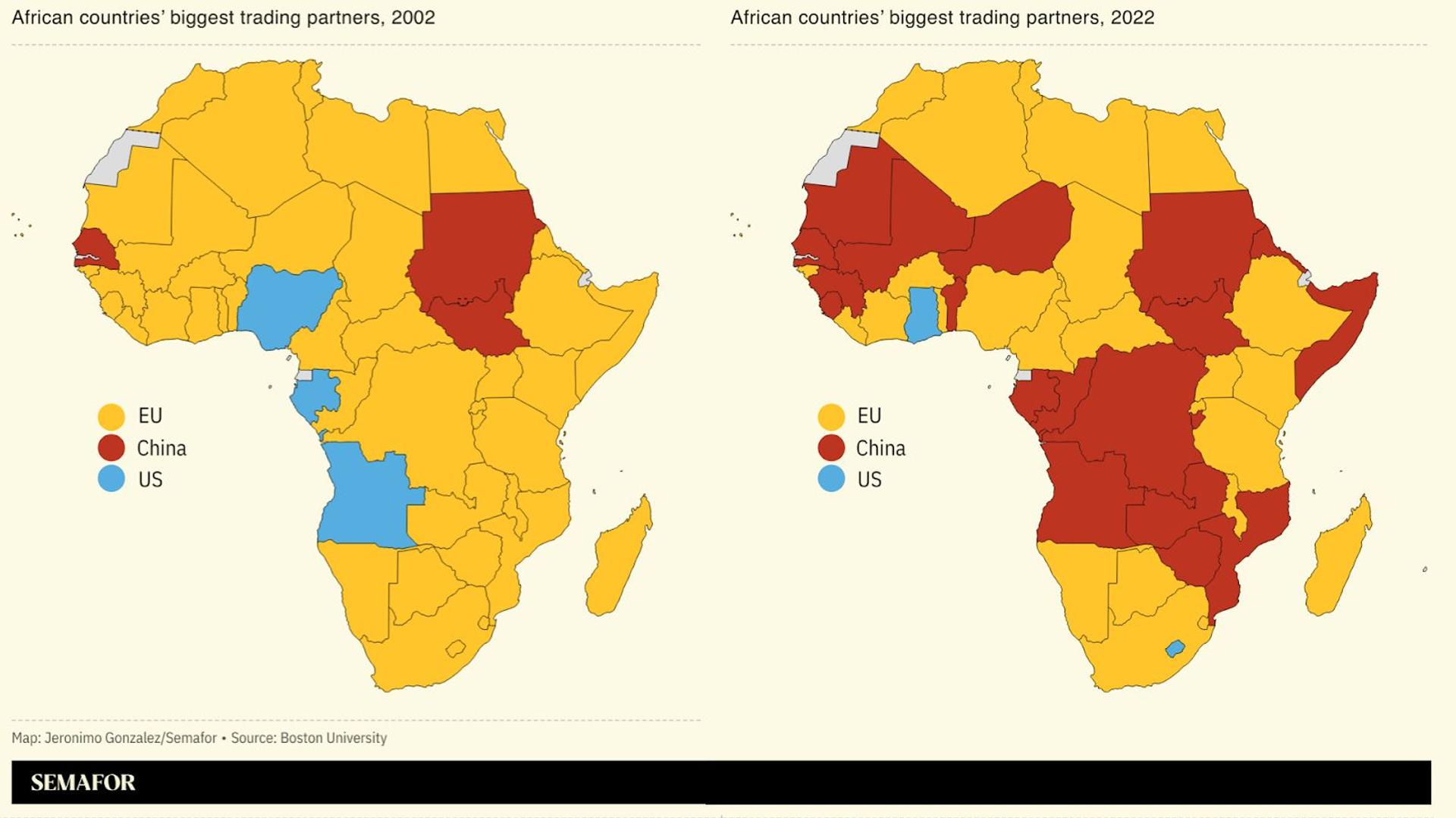The News
The African Union needs a major overhaul to address the continent’s biggest challenges as the United States steps away from Africa under Donald Trump’s presidency, analysts told Semafor, as the regional body prepares to elect new leaders.
The AU will elect a new chair of its commission to succeed Moussa Faki Mahamat, a former prime minister of Chad, at a summit on Feb. 15 and 16 in Addis Ababa. Vying for the top role are former Kenyan Prime Minister Raila Odinga, Madagascar’s ex-Finance Minister Richard Randriamandrato, and former Djiboutian Foreign Affairs Minister Mahmoud Ali Youssouf. A deputy chair and six commissioners will also be elected this week.
The bloc of 55 member states has struggled to play a significant role during the economic shocks and security issues facing the continent in recent years. But in 2023 it was given a bigger remit with entry into the G20.
Now, the dismantling of Washington’s main foreign aid body, the US Agency for International Development, presents another potential opportunity for the AU to step up its regional role on everything from health care to agriculture and trade. The USAID funding cuts are already plunging the groups that depend on it into crisis mode.
Mavis Owusu-Gyamfi, president of the African Center for Economic Transformation think tank in Ghana, said the AU Commission’s new leaders will need to “develop a strong position in the G20, especially as the US leaves a vacuum of leadership.”
She said the AU should “lean into its stronger bargaining power on the global stage” which, alongside its place in the G20, meant drawing on African countries having seats in the UN, World Bank, and International Monetary Fund to get the continent’s “financial and political systems in order.” But, like other analysts who spoke to Semafor, she stressed that the new leaders must also implement “timely reforms” to make the organization “fit for purpose.”
In this article:
Know More
Faki’s eight years as AU chief were marked by the bloc facing widespread criticism for failing to mediate effectively during conflicts in Sudan and eastern DR Congo, and its inability to intervene during the coups that have hit West and Central Africa in recent years. However, the AU did successfully broker the 2022 ceasefire that halted the conflict in Ethiopia’s northern Tigray region.
Alex Vines, Africa program director at Chatham House, said the AU requires “urgent reform” and the new team will need to “inject vision and authority” for member states to invest more in the organization. Vines said the AU’s accession into the G20 was an important moment that helped the body to gain influence with other regional blocs. But “this won’t continue if it fails to reform and become more relevant for Africans,” he stressed.

Alexis’s view
The AU’s new leadership team will take over at a crucial time. The Trump administration is disrupting the established world order. And the AU’s amplified voice in global affairs, due to its G20 membership, is helped by South Africa taking on the rotating chairmanship of that group of nations. It means the AU has the best chance in years to make its voice heard.
But in order to shed its reputation for inefficiency and toothlessness, it will have to address the systemic issues that have held it back. Its parliament lacks binding legislative authority, the AU Commission cannot force member states to adhere to its rules, and member states frequently flout the rulings of its human rights court.
Overcoming these deep-rooted problems may be beyond the timescale afforded to the next commission chair — whoever wins the weekend vote will land a four-year term and can only be reelected once. So much will depend on their ambition and drive.
Odinga, the frontrunner, has pledged to work with the continent’s leaders to secure two permanent seats for Africa at the UN Security Council, a move that was supported by the Biden administration. Youssouf has vowed to tackle regional insecurity. Randriamandrato, meanwhile, has said he wants to improve intra-African trade by empowering regional economic blocs.
The timing is right. If the winning candidate can translate their job pitch into genuine momentum in the role, the AU could change.
Room for Disagreement
“In principle, this is supposed to be a significant role. But in practice, the AU commission chair has wielded limited power,” Mvemba Phezo Dizolele, director of the Washington-based Africa Program at the Center for Strategic and International Studies think tank, told Semafor. “This is because the commission’s standing depends on the performance of the AU at large, and the AU has underperformed for years.”
Notable
- The AU has become “a byword for institutional inertia,” according to African Business, which asks whether it can be “saved from itself.”
